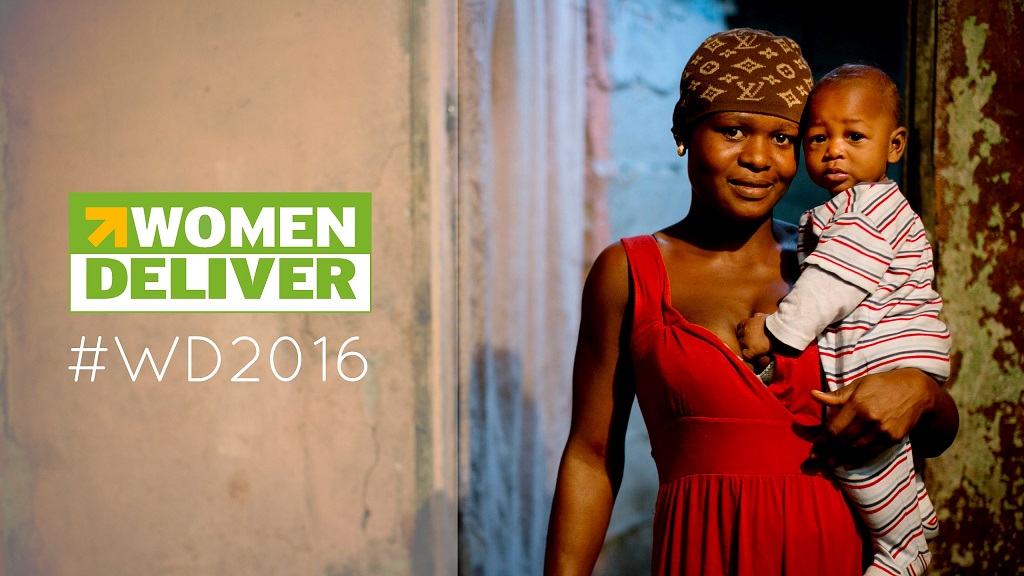As USAID’s flagship Maternal and Child Survival Program, we’re excited to participate in the Women Deliver Conference and share more about our mission to end preventable child and maternal deaths in a generation.
Follow us on Facebook and Twitter throughout the conference, and join the conversation using #WD2016.
At booth C2057, our staff will be on hand to discuss our work to help #MomandBaby in USAID’s 24 priority countries, and to assist with a series of interactive pop-ups:
May 17, 2016, 10 AM – 12 PM
Pathway of Opportunities for Postpartum Family Planning
Angela Nash-Mercado, Senior Program Officer
Interested in the multiple opportunities to deliver family planning services during the postpartum period? Learn about our work to scale up PPFP globally!
May 17, 2016, 2 – 4 PM
Alternative Birth Positions
Sheena Currie, Senior Maternal Health Advisor
Learn about MCSP’s work to support alternative birth positions, a key component of respectful maternity care. Ability to choose labor and birth positions improves outcomes for the woman, baby, and health system.
May 17, 2016, 4 – 6 PM
Nurse Marian: #FPClients1st
Liz Eddy, Communications Specialist (@Liz_EddyDC)
Koki Agarwal, Director (@Koki_Agarwal)
Learn more about MCSP’s work to provide client-centered counselling on postpartum family planning through community health workers.
May 18, 2016, 12 – 2 PM
PPIUCD Demonstration on MamaU
Rashmi Asif, Director, MNH Clinical Services and Training, India
Come see a postpartum IUD insertion demo, using a MamaU, which represents a postpartum uterus. This demo is an opportunity for healthcare providers to practice and assess their skills for competency.
May 18, 2016, 4 – 6 PM
ORB Platform
Alex Little, Knowledge Management Advisor, mPowering (@mPoweringHealth)
Check out mPowering’s ORB platform to connect Frontline Health Workers to resources and each other to expand their knowledge, organize content into courses, and share their learning with the community.
May 19, 2016, 10 AM – 12 PM
Gender Power Hour
Myra Betron, Director, Gender (@Myra_Lexie)
Hear about Jhpiego’s newly launched Gender Analysis Toolkit, a method of assessing general and health-specific issues to create more effective and empowering programming around the world.
MCSP’s Director, Dr. Koki Agarwal will also be participating in a number of high-level sessions at #WD2016:
May 17, 2016, 6:30 – 8:00 AM
Hosted by PopCouncil
Conference Room 179
Less than $5 per person spent on reproductive, maternal, newborn and child health interventions can save 4 million lives each year. And, yet every day we see 830 women die from preventable causes related to pregnancy and child birth. This dynamic breakfast discussion will consist of an expert panel of researchers, practitioners, media and advocates sharing insights on how we can deliver care that is high-quality, respectful and anchored in human rights for all mothers and children. Followed by a Q&A session.
May 17, 2016, 10:30 AM – 12:00 PM
Concurrent Session: Acting on the Unmet Need for Midwifery Personnel
Room B4-1
Sexual, Reproductive, Maternal, and Newborn Health (SRMNH) services are core components of every health system. However, extensive deficits still remain in the midwifery workforce. Explore the country and sub-national realities of creating employment, career paths, retention, and security in the scale-up of midwifery services.
May 18, 2016, 1:10 – 1:25 PM
Speaker’s Corner: #MomandBaby in the SDG Era: 10 Actions We Can Take
Center Hall E (Adjacent to Exhibition Hall)
In October 2015, the global maternal newborn health community gathered to share emerging evidence, ask hard questions, and learn from those doing vital work within countries. Now it’s time to review the roadmap for maternal newborn health in the post-2015 era – and 10 actions we can take to make a difference for mothers and newborns.
May 18, 2016, 10:30 AM – 12:00 PM
Concurrent Session: The Female Face of Communicable Diseases
Room B3-2
When it comes to communicable disease, women are both the recipients and providers of care. Learn about the different individual, community, and programmatic solutions—particularly those spearheaded by women—that are increasing access to communicable disease services.

